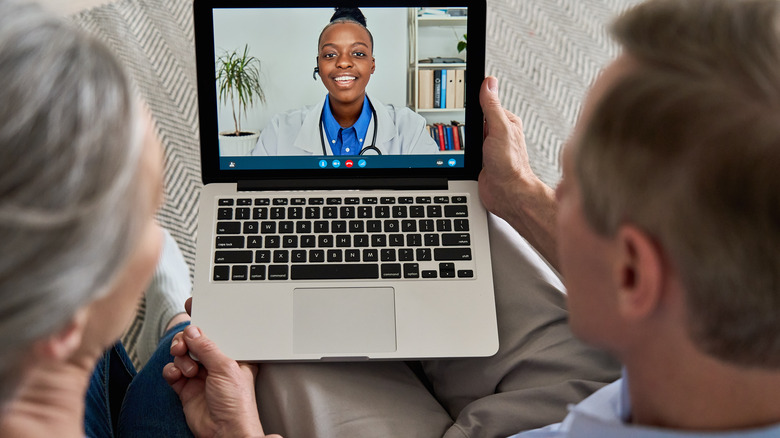Study Finds Telemedicine Could Improve The Lives Of Advanced Cancer Patients
As the world adjusted to the COVID-19 pandemic, telemedicine became the new normal, with social distancing and stay-at-home orders forcing patients to receive care virtually rather than in person. Research has shown that telehealth is not only convenient but effective as well. In fact, a new study shows that it could be especially helpful for those living with advanced cancer.
According to a 2021 report from the U.S. Department of Health and Human Services, Medicare telehealth usage increased 63-fold in 2020, from 840,000 visits in 2019 to 52.7 million. Telemedicine was accessed more in urban areas than rural ones, and Black beneficiaries were less likely to access telehealth care than white beneficiaries. The report also found that mental health services were the most highly utilized telehealth services, making up a third of all visits to behavioral health specialists. A 2021 report published by the Centers for Disease Control and Prevention had similar findings, touting telemedicine as beneficial for reducing the spread of COVID-19 and mitigating the strain on healthcare facilities. It also highlighted the importance of continuing to expand telehealth in order to provide access to care.
Frequent telehealth check-ins versus occasional in-person visits
Now, a new study published in the Journal of the American Medical Association has found that telemedicine has greatly improved the lives of those with advanced cancer (via U.S. News & World Report). Researchers from the University of North Carolina followed 1,191 patients, who reported their symptoms electronically on a weekly basis. The three-minute online questionnaire asked about common cancer symptoms as well as questions about financial stability and mental health needs. If a recorded symptom was alarming or the system determined that further action was needed, a medical provider would be alerted to follow up with the patient. Compared to those who received in-person care less frequently, 33% of these patients found that their physical function improved, while 15% experienced better management of their symptoms.
Researchers emphasized that not only will this program cost patients less money, but it will also reduce healthcare costs overall, as focusing on preventive health care will reduce the need for emergency visits and doctor consultations in later stages of care. It was also noted that this program worked well for older folks too, as the mean age of participants was 62 years. This study is especially critical as a new bill expanding Medicare coverage for telemedicine works its way through the U.S. Senate.


